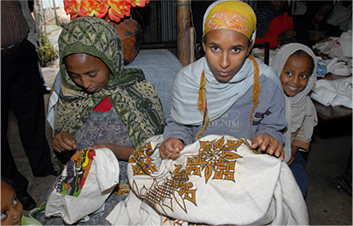Empowerment
Strengthening participation of persons affected by leprosy, utilizing their valued experiences of the disease, is one of WHO’s global strategies. We value the role of organizations affected by leprosy, as they are the ones who create a better society free from leprosy-related problems.
See the good practices of the organizations.
Empowerment
ASIA
APAL……India
Association of People Affected by Leprosy (APAL) earlier known as National Forum is a national networking organization of persons affected by leprosy, founded in 2006 with the support from The Nippon Foundation. Its mission is to work for the socio-economic empowerment and welfare of persons affected by leprosy, and it forms an essential part of Mr. Sasakawa’s vision of mainstreaming the affected population and their families in restoring their dignity.
http://www.apalindia.in/
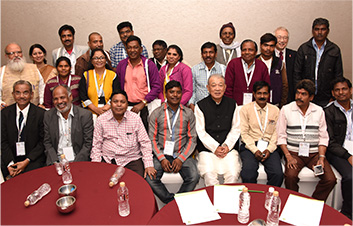
S-ILF……India
Sasakawa India Leprosy Foundation (S‒ILF) is a foundation based in New Delhi that was established by The Nippon Foundation in 2006. S‒ILF provides livelihood programs to residents of leprosy colonies (persons affected by leprosy and their families) to promote self‒reliance and include training in basic business skills. Constant guidance through mentorship and close monitoring as well as financial lending are also offered to ensure sustainable livelihood. As of 2016, approximately 250 businesses had been started in colonies with financial assistance, and about 70% of them were reporting successful results. It also works with His Holiness the 14th Dalai Lama for the “Dalai Lama-Sasakawa Scholarship,” which provides higher education for young residents of the colonies.http://silf.in/
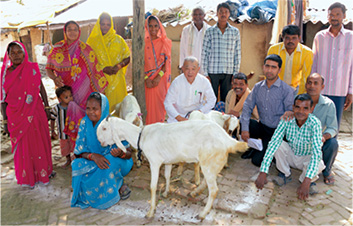
CLAP……Philippines
The Coalition of Leprosy Advocates of the Philippines (CLAP) was organized in 2012 to unite the voices of leprosy affected groups across the country, aiming for creating opportunities for work and giving a fight for their rights. It engages in leprosy services in partnership with the Department of Health of the Philippine Government.
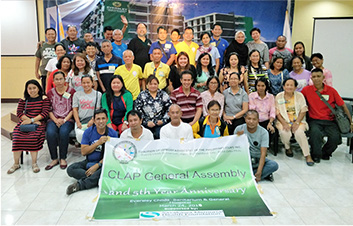
HANDA Rehabilitation & Welfare Association……China
HANDA started to organize persons affected by leprosy in 1996 as a China branch of IDEA (International Association for Integration, Dignity and Economic Advancement). As of 2018, it has become a highly accountable NGO in China with over 5,000 members and thousands of volunteers, assisting persons affected by leprosy in the leprosy villages in South China.http://www.handa-idea.org/
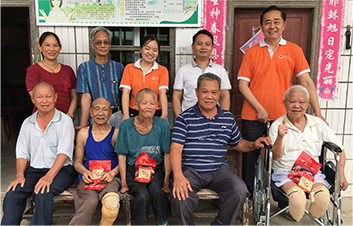
PerMaTa……Indonesia
Independent Association of Leprosy Indonesia (PerMaTa) is a nationwide network of persons affected by leprosy, organized in 2007, and now with 29 branches in 4 states. Its vision is to free from the stigma and discrimination towards decent quality of life, and works to conduct advocacy to build awareness, to realize equality in life, and to provide education and training for persons affected by leprosy.
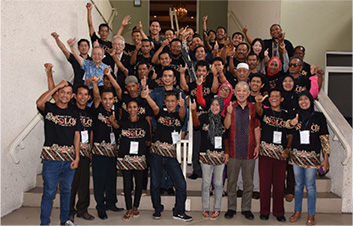
SOUTH AMERICA
MORHAN……Brazil
Founded in 1981, Movimento de Reintegração das Pessoas Atingidas pela Hanseníase (MORHAN, Movement for Reintegration of People Affected by Hansen’s Disease) is one of the oldest NGO working for leprosy. It aims at leprosy elimination through awareness raising, and it also focuses on building effective public policies for the persons affected by leprosy. Morhan fights to guarantee the rights of persons affected by leprosy and their families, and many volunteers support its activities. http://www.morhan.org.br/ facebook
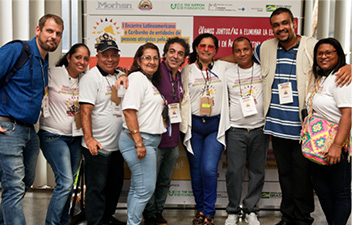
Felehansen……Colombia
Felehansen is the Colombian National Federation of People Affected by Leprosy which was established in 2014 with the aim of uniting the country’s regional leprosy organizations. It is committed to assuming responsibility in leprosy services and control programs, and it now represents 700 volunteers; 500 affected by leprosy and 200 not affected, through its nine affiliates and four associations.facebook
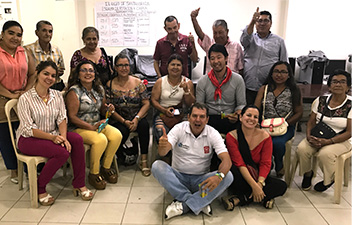
AFRICA
ENAPAL……Ethiopia
The Ethiopian National Association of Persons Affected by Leprosy (ENAPAL), founded in 1996, is one organization in Africa known for its unique approach. Its administrative costs are partially covered by dues from members. Together with the Ministry of Health, ENAPAL organizes programs to raise awareness about leprosy and undertakes a variety of initiatives to promote the socio‒economic independence of those who have been affected by leprosy. http://www.enapal.org/home
